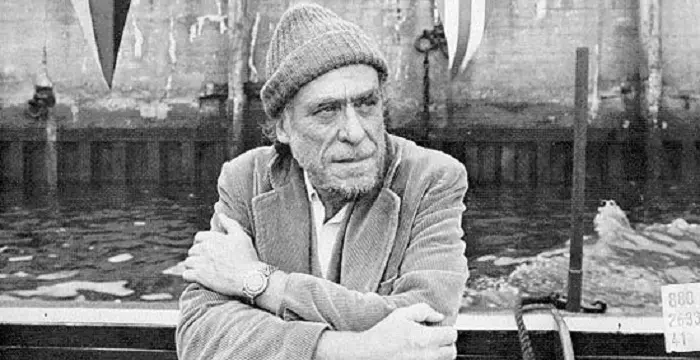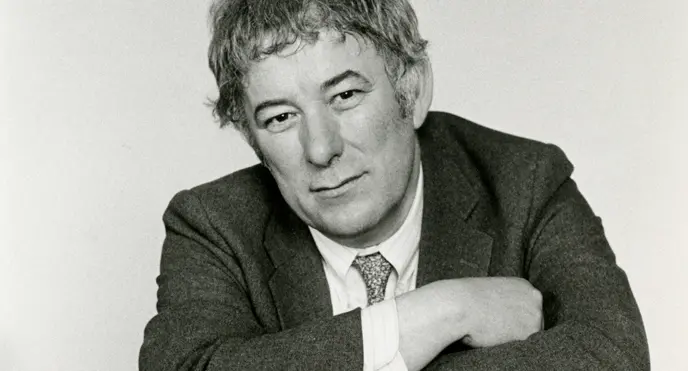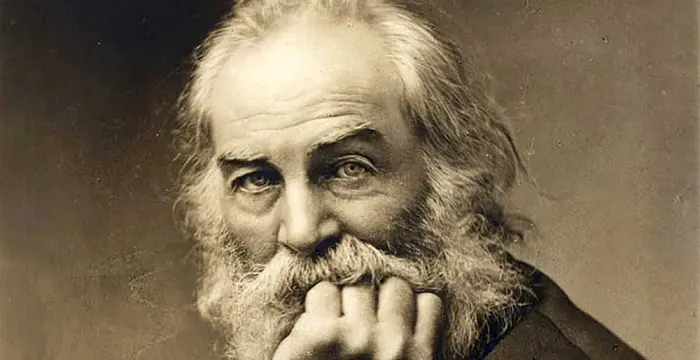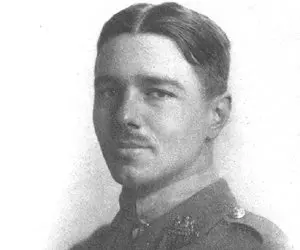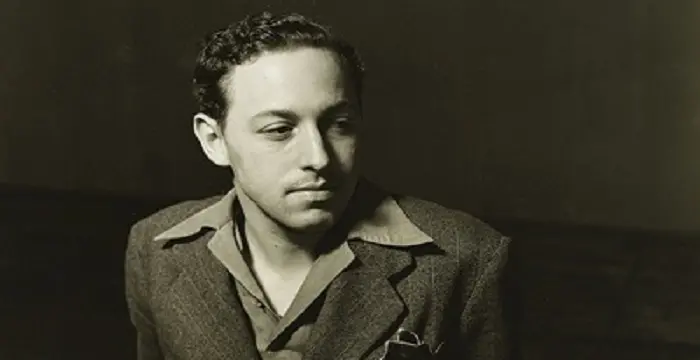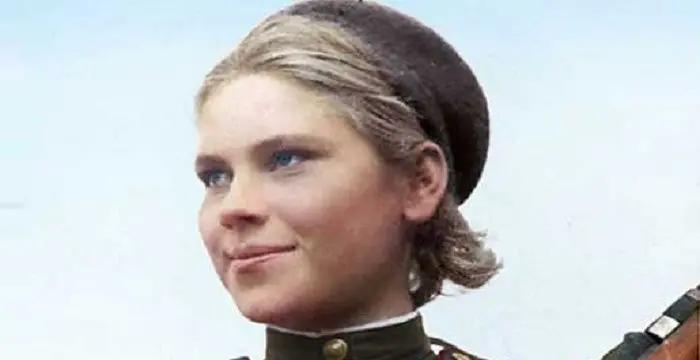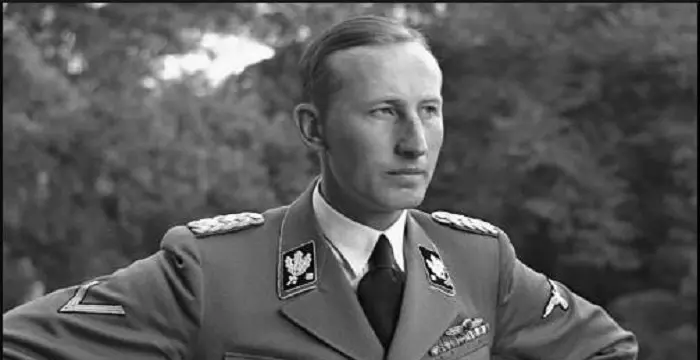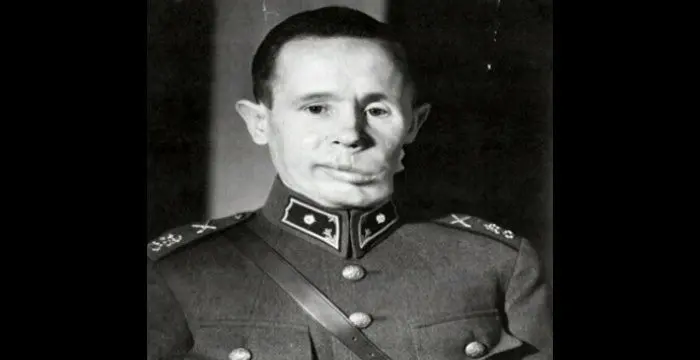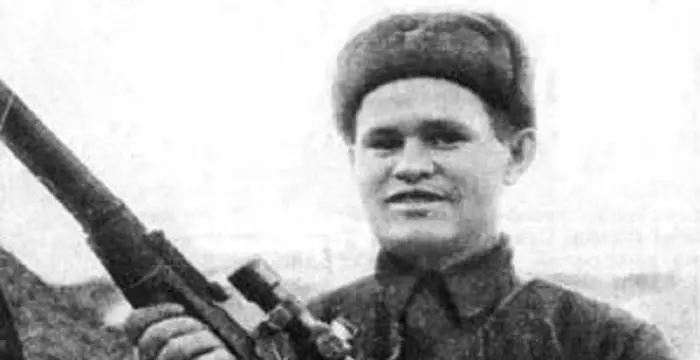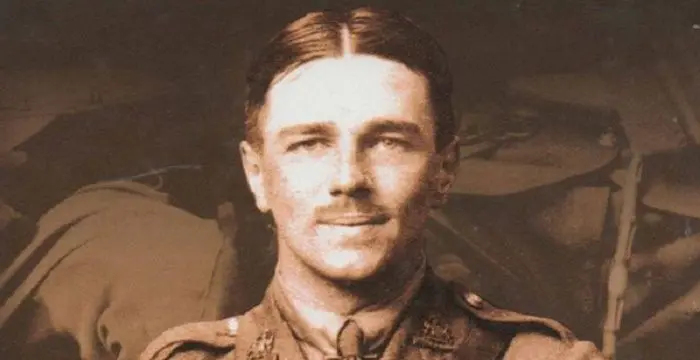
Wilfred Owen - Gays, Family and Childhood
Wilfred Owen's Personal Details
Wilfred Owen was an English poet and soldier and the greatest writer of war poetry in the English language
| Information | Detail |
|---|---|
| Birthday | March 18, 1893 |
| Died on | November 4, 1918 |
| Nationality | British |
| Famous | Gays, Poets, Miscellaneous, Soldiers |
| Siblings | Colin, Harold, Mary Millard Owen |
| Known as | Wilfred Edward Salter Owen |
| Universities |
|
| Birth Place | Oswestry |
| Gender | Male |
| Father | Harold Owen |
| Mother | Susan Owen |
| Sun Sign | Pisces |
| Born in | Oswestry |
| Famous as | Poet |
| Died at Age | 25 |
// Famous Poets
Charles Bukowski
Charles Bukowski was a German-born American novelist, short story writer and poet. With this biography, learn in details about his childhood, life, works, career and timeline
Seamus Heaney
Nobel Laureate Seamus Heaney was an Irish poet, playwright and translator. Know about his profile, childhood, life and timeline in the biography below.
Walt Whitman
Walt Whitman was an American poet, journalist and humanist. Read this brief biography to find more on his life & timeline.
Wilfred Owen's photo
Who is Wilfred Owen?
Wilfred Owen was an English poet and solider. His family shuffled between Birkenhead and Shrewsbury during his childhood, and he was educated at the Birkenhead Institute and at Shrewsbury Technical School. Raised as an Anglican, he was a devout believer in his youth. However, he lost faith in the church because of its ceremony and failure to help those in need. He enlisted in the Artists’ Rifles Officers’ Training Corps when war broke out. He trained at Hare Hall Camp in Essex, and was commissioned as a second lieutenant in the Manchester Regiment. With a trench mortar hitting him, he was sent to Craiglockhart War Hospital in Edinburgh for treatment. There he met poet Siegfried Sassoon whose realism, and the romanticism of Keats and Shelly influenced his poetry a great deal. Historians regard Owen as a leading poet of the First World War. He is famous for his war poetry on the horrors of trench and gas warfare. His best-known works are “Dulce et Decorum Est”, “Insensibility”, “Anthem for Doomed Youth”, “Futility” and “Strange Meeting”. While attempting to cross the Sambre canal, he was shot and killed. The news of his death arrived at his parents’ house in Shrewsbury on Armistice Day.
// Famous Gays
Wentworth Miller
Wentworth Miller is an American actor and screenwriter who achieved recognition for his role in the TV series ‘Prison Break’.
Tennessee Williams
Tennessee Williams was one of the greatest playwrights of the 20th century. This biography of Tennessee Williams provides detailed information about his childhood, life, achievements, works and timeline.
Leo Varadkar
Cam Leo Varadkar is the current Taoiseach—the Prime Minister—of the Republic of Ireland. Check out this biography to know about his childhood, family life, achievements and other facts about his life.
Childhood & Early Life
Wilfred Owen was born Wilfred Edward Salter Owen on March 18, 1893 to Thomas Owen and Harriet Susan Shaw Owen at Oswestry, Shropshire, England. The eldest of four children, his siblings were Harold, Colin and Mary Millard Owen.
The family lived in a comfortable house owned by his grandfather, Edward Shaw. The house was sold after his death. The family then stayed in Birkenhead while Thomas Owen worked with a railway company.
His father was transferred to Shrewsbury, during which time the family lived with Thomas’ parents in Canon Street. In 1898, Thomas was transferred back to Birkenhead when he became stationmaster at Woodside station.
His family moved homes three successive times in the Tranmere district. They moved back to Shrewsbury in 1907. Wilfred was educated at the Birkenhead Institute and at Shrewsbury Technical School.
He discovered his poetic talents in 1903 when he was 10 years old when holidaying in Cheshire. Raised as an Anglican of the evangelical school, he was a devout believer during his youth.
Career/Later Life
Owen was a pupil-teacher at the Wyle Cop School in Shrewsbury. In 1911, he passed the matriculation exam for the University of London, but did not qualify for scholarship.
He worked as an assistant to the Vicar of Dunsden near Reading in return for free lodging, and some tuition for the entrance exam. He also attended botany classes at University College, Reading.
He took free lessons in Old English at the behest of the English Department’s head. He was disillusioned with the Church in Dunsden parish for its ceremony and failure to help those in need.
From 1913, he worked as a private tutor of English and French at the Berlitz School of Languages in Bordeaux, France, and later with a family. There he met the French poet Laurent Tailhade.
When war broke out, he enlisted in the Artists’ Rifles Officers’ Training Corps. He trained at Hare Hall Camp in Essex. In 1916, he was commissioned as a second lieutenant in the Manchester Regiment.
After a trench mortar hit him, he was diagnosed as suffering from neurasthenia or shell shock, and was sent to Craiglockhart War Hospital in Edinburgh for treatment. There he met poet Siegfried Sassoon.
Dr. Arthur Brock, at Craiglockhart, advised him to put his war experiences into poetry. He composed poems, including “Futility” and “Strange Meeting”. He made friends with intellectuals, and taught at the Tynecastle High School.
Owen’s early writing and poetry were initially influenced by the Romantic poets Keats and Shelley. Later, Siegfried Sassoon’s impact can be seen in his poems, “Dulce et Decorum Est” and “Anthem for Doomed Youth”.
He wrote a “Preface” for the verses he planned to write. However, the only poems he saw published were those published in The Hydra, the magazine he edited, and “Miners” published in The Nation.
In 1918, he was posted to the Northern Command Depot at Ripon. He led units of the Second Manchesters to storm a number of enemy strong points near the village of Joncourt.
Major Works
Five poems published before Owen’s death were also his best known ones including “Anthem for Doomed Youth”, “Futility”, “Dulce Et Decorum Est”, “The Parable of the Old Men and the Young” and “Strange Meeting”.
Awards & Achievements
Owen was awarded the Military Cross for his courage and leadership in the Joncourt action. The award was gazetted on 15 February 1919, followed by a citation.
Personal Life & Legacy
Owen’s friends, Robert Graves and Sacheverell Sitwell, have stated that he was homosexual. It has been debated whether Owen had an affair with Scottish writer C. K. Scott-Moncrieff in May 1918.
The forester’s house in Ors, Maison forestière de l’Ermitage, where Owen spent his last night, has been transformed by Simon Patterson into an art installation and permanent memorial to Owen and his poetry.
A week before the war ended, while attempting to cross the Sambre canal, he was shot and killed on November 4, 1918. The news of his death arrived at his parents’ house in Shrewsbury on Armistice Day.
In 1975, Mrs. Harold Owen, sister-in-law, donated his manuscripts, photographs and letters to the University of Oxford’s English Faculty Library. The Harry Ransom Humanities Research Center, Texas, holds a collection of his family correspondence.
Trivia
This poet has been the subject matter of the Pat Barker’s novel “Regeneration”, Stephen MacDonald’s play “Not About Heroes”, and Dean Johnson’s musical play, “Bullets and Daffodils” starring Christopher Timothy as the narrator.
// Famous Soldiers
Roza Shanina
Roza Shanina was a Russian sniper who came to be known as “the unseen terror of East Prussia” during World War II. Find more about her childhood, family, personal life, etc.
Reinhard Heydrich
Reinhard Heydrich was a high-ranking German Nazi official during the World War II. Check out this biography to know about his childhood, family life, achievements and other facts about his life.
Simo Häyhä
Simo "Simuna" Häyhä was a Finnish sniper, considered the most deadly sniper in war history. Find more about his family, childhood, personal life, career, achievements, etc.
Wilfred Owen biography timelines
- // 18th Mar 1893Wilfred Owen was born Wilfred Edward Salter Owen on March 18, 1893 to Thomas Owen and Harriet Susan Shaw Owen at Oswestry, Shropshire, England. The eldest of four children, his siblings were Harold, Colin and Mary Millard Owen.
- // 1898His father was transferred to Shrewsbury, during which time the family lived with Thomas’ parents in Canon Street. In 1898, Thomas was transferred back to Birkenhead when he became stationmaster at Woodside station.
- // 1903He discovered his poetic talents in 1903 when he was 10 years old when holidaying in Cheshire. Raised as an Anglican of the evangelical school, he was a devout believer during his youth.
- // 1907His family moved homes three successive times in the Tranmere district. They moved back to Shrewsbury in 1907. Wilfred was educated at the Birkenhead Institute and at Shrewsbury Technical School.
- // 1911Owen was a pupil-teacher at the Wyle Cop School in Shrewsbury. In 1911, he passed the matriculation exam for the University of London, but did not qualify for scholarship.
- // 1913From 1913, he worked as a private tutor of English and French at the Berlitz School of Languages in Bordeaux, France, and later with a family. There he met the French poet Laurent Tailhade.
- // 1916When war broke out, he enlisted in the Artists’ Rifles Officers’ Training Corps. He trained at Hare Hall Camp in Essex. In 1916, he was commissioned as a second lieutenant in the Manchester Regiment.
- // 1918In 1918, he was posted to the Northern Command Depot at Ripon. He led units of the Second Manchesters to storm a number of enemy strong points near the village of Joncourt.
- // May 1918Owen’s friends, Robert Graves and Sacheverell Sitwell, have stated that he was homosexual. It has been debated whether Owen had an affair with Scottish writer C. K. Scott-Moncrieff in May 1918.
- // 4th Nov 1918A week before the war ended, while attempting to cross the Sambre canal, he was shot and killed on November 4, 1918. The news of his death arrived at his parents’ house in Shrewsbury on Armistice Day.
- // 15th Feb 1919Owen was awarded the Military Cross for his courage and leadership in the Joncourt action. The award was gazetted on 15 February 1919, followed by a citation.
- // 1975In 1975, Mrs. Harold Owen, sister-in-law, donated his manuscripts, photographs and letters to the University of Oxford’s English Faculty Library. The Harry Ransom Humanities Research Center, Texas, holds a collection of his family correspondence.
// Famous Miscellaneous
Jason Simpson
Jason Simpson is the son of former NFL running back, broadcaster and actor O. J. Simpson. Check out this biography to know about his childhood, family, life, and little known facts about him.
Melissa Brim
Melissa Brim is the ex-girlfriend of former professional boxer Floyd Mayweather Jr. Check out this biography to know about her birthday, childhood, family life, achievements and fun facts about her.
Joyce Meyer
Joyce Meyer is a Christian author and speaker. This biography provides detailed information about her childhood, life, achievements, works & timeline
Galina Becker
Galina Becker is a former athlete and fitness model from America. Check out this biography to know about her birthday, childhood, family life, achievements and fun facts about her.
Jacelyn Reeves
Jacelyn Reeves is a former flight attendant who once had a fling with Clint Eastwood. Check out this biography to know about her birthday, childhood, family life, achievements and fun facts about her.
Vasily Zaytsev
Vasily Zatysev was a Russian sniper who served during the World War II. Check out this biography to know about his childhood, family life, achievements and fun facts about him.
Wilfred Owen's FAQ
What is Wilfred Owen birthday?
Wilfred Owen was born at 1893-03-18
When was Wilfred Owen died?
Wilfred Owen was died at 1918-11-04
Where was Wilfred Owen died?
Wilfred Owen was died in Sambre–Oise Canal
Which age was Wilfred Owen died?
Wilfred Owen was died at age 25
Where is Wilfred Owen's birth place?
Wilfred Owen was born in Oswestry
What is Wilfred Owen nationalities?
Wilfred Owen's nationalities is British
Who is Wilfred Owen siblings?
Wilfred Owen's siblings is Colin, Harold, Mary Millard Owen
What was Wilfred Owen universities?
Wilfred Owen studied at University of London, University of Reading
Who is Wilfred Owen's father?
Wilfred Owen's father is Harold Owen
Who is Wilfred Owen's mother?
Wilfred Owen's mother is Susan Owen
What is Wilfred Owen's sun sign?
Wilfred Owen is Pisces
How famous is Wilfred Owen?
Wilfred Owen is famouse as Poet
